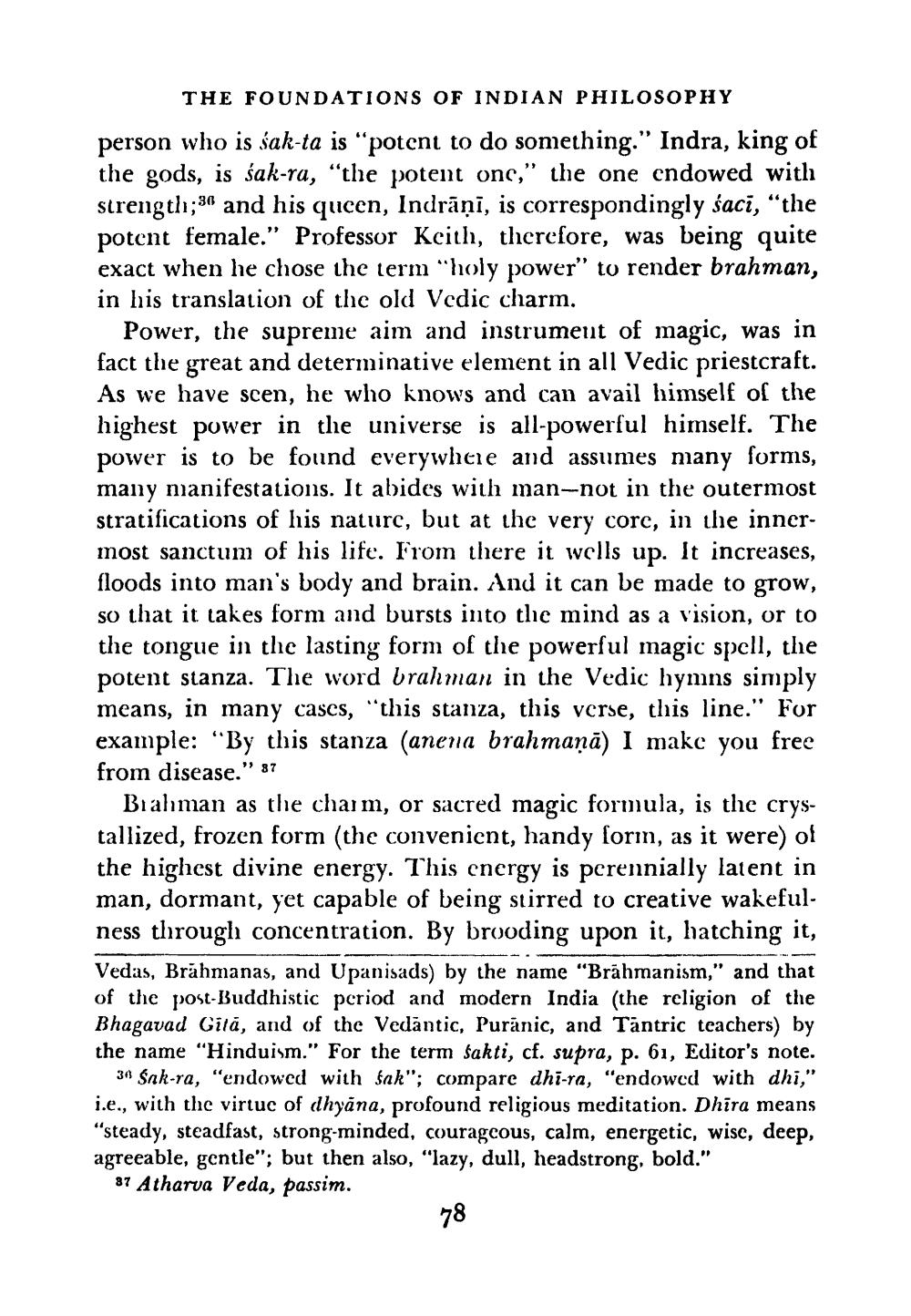________________
THE FOUNDATIONS OF INDIAN PHILOSOPHY
person who is sak-ta is "potent to do something." Indra, king of the gods, is sak-ra, "the potent one," the one endowed with strength;30 and his queen, Indrāņī, is correspondingly śaci, “the potent female." Professor Keith, therefore, was being quite exact when he chose the term "holy power" to render brahman, in his translation of the old Vedic charm.
Power, the supreme aim and instrument of magic, was in fact the great and determinative element in all Vedic priestcraft. As we have scen, he who knows and can avail himself of the highest power in the universe is all-powerful himself. The power is to be found everywhere and assumes many forms, many manifestations. It abides with man-not in the outermost stratifications of his nature, but at the very core, in the innermost sanctum of his life. From there it wells up. It increases, floods into man's body and brain. And it can be made to grow, so that it takes form and bursts into the mind as a vision, or to the tongue in the lasting form of the powerful magic spell, the potent stanza. The word brahman in the Vedic hymns simply means, in many cases, "this stanza, this verse, this line." For example: "By this stanza (anena brahmaṇā) I make you free from disease." 87
Brahman as the charm, or sacred magic formula, is the crystallized, frozen form (the convenient, handy form, as it were) of the highest divine energy. This energy is perennially latent in man, dormant, yet capable of being stirred to creative wakefulness through concentration. By brooding upon it, hatching it, Vedas, Brahmanas, and Upanisads) by the name "Brahmanism," and that of the post-Buddhistic period and modern India (the religion of the Bhagavad Gita, and of the Vedantic, Puranic, and Tantric teachers) by the name "Hinduism." For the term sakti, cf. supra, p. 61, Editor's note.
3 Sak-ra, "endowed with sak"; compare dhi-ra, "endowed with dhi," i.e., with the virtue of dhyana, profound religious meditation. Dhīra means "steady, steadfast, strong-minded, courageous, calm, energetic, wise, deep, agreeable, gentle"; but then also, "lazy, dull, headstrong, bold."
87 Atharva Veda, passim.
78




